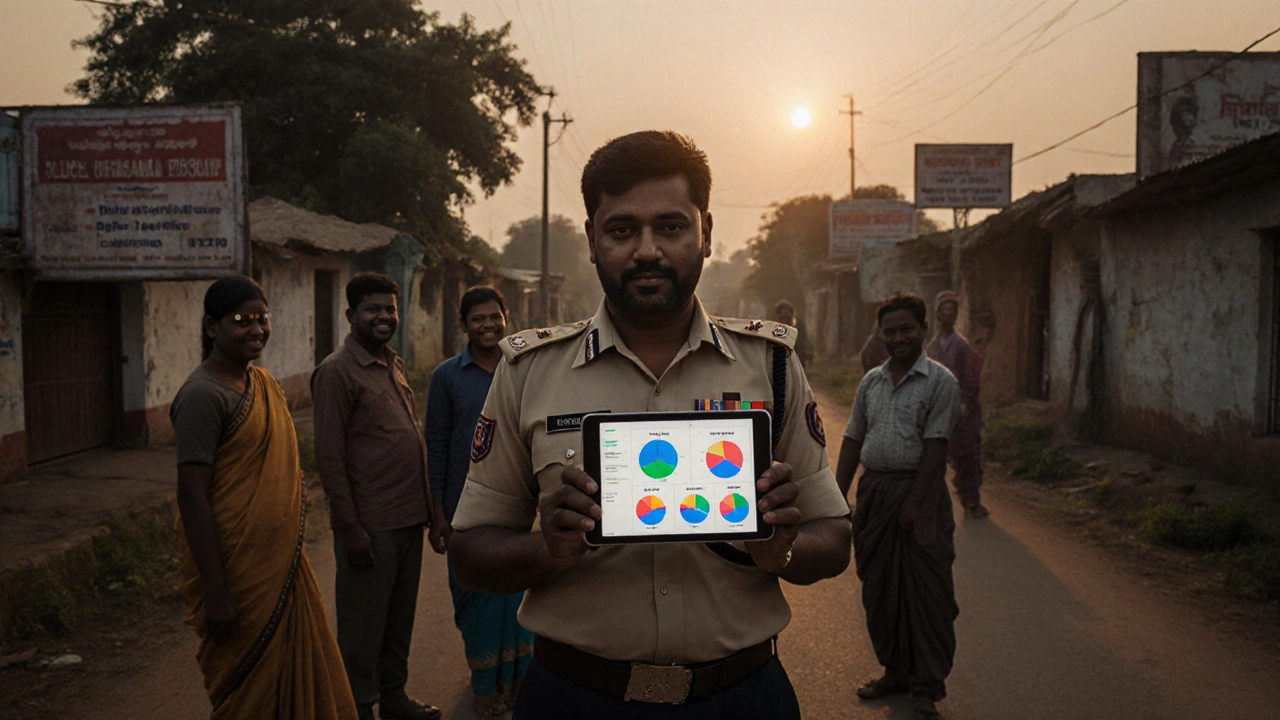Degree Fit Matcher
Find Your Perfect Competitive Exam Path
Answer 3 quick questions to discover which competitive exam path aligns best with your strengths and passions.
Your Personalized Fit Assessment
Engineering (IIT JEE)
Most FitBased on your answers, this path aligns with your strengths in problem-solving and technical systems.
"If you love solving puzzles with numbers, circuits, and code... this is your degree."
Medicine (NEET)
Strong FitYour passion for responsibility aligns with healthcare's demanding reality.
"Real medicine is 36-hour shifts... That's the real cool."
Civil Services (UPSC)
Moderate FitYour strategic thinking suits policy work, but may need more social systems focus.
"You need to be a generalist with the focus of a specialist."
Law (CLAT)
Good FitYour precision and argument skills match legal reasoning demands.
"You learn to read between the lines of contracts... You just need to be precise."
There’s no such thing as the coolest degree-not really. But if you’re asking because you’re stuck between studying for IIT JEE, NEET, or UPSC, and you want to pick the path that feels worth the grind, then you’re asking the right question. The coolest degree isn’t the one with the most prestige. It’s the one that matches your brain, your stamina, and your long-term fire.
Engineering: The Degree That Builds the World
If you love solving puzzles with numbers, circuits, and code, then a B.Tech in Computer Science or Electrical Engineering might be your version of cool. Think about it: you spend two years memorizing thermodynamics, then another two building apps that millions use. IIT graduates don’t just get jobs-they launch startups, design AI models, and fix power grids. In 2025, over 1.8 million students took JEE Main. Only 25,000 cracked IITs. That’s the filter. And the payoff? Average starting salaries for IIT CS grads hit ₹18-25 lakhs per year. That’s not luck. That’s skill sharpened by 1000+ hours of problem sets.
But here’s the catch: engineering degrees demand relentless practice. One wrong step in a circuit design, and your entire project fails. You don’t just study-you iterate. You debug. You fail, then try again. If you’re the kind of person who gets bored reading theory but lights up when you see code run for the first time, this is your degree.
Medicine: The Degree That Saves Lives
NEET is the gatekeeper. Over 2.5 million students took it in 2025. Less than 10% got into government medical colleges. That’s brutal. But if you’re drawn to biology, anatomy, and the idea of holding someone’s life in your hands, then MBBS is the only degree that fits.
Forget the glamour. Real medicine is 36-hour shifts, handwritten case notes, and watching a newborn take its first breath after a complicated delivery. It’s not about fame. It’s about responsibility. Doctors in rural India often work without basic supplies. Yet they show up. That’s the real cool.
And the payoff? After 5.5 years of MBBS and a year of internship, you’re not just a graduate-you’re a licensed healer. You can work in a hospital, open your own clinic, or even join the armed forces as a medical officer. The salary? Starts at ₹6-8 lakhs, but with experience, it climbs past ₹20 lakhs. More importantly, you’ll never run out of purpose.
Civil Services: The Degree That Shapes Nations
UPSC is the ultimate test of patience. Thousands prepare for years. Most never clear it. But those who do? They become District Magistrates, IAS officers, or Indian Foreign Service diplomats. They draft policies, manage disaster relief, and negotiate treaties.
This isn’t a degree you earn in a classroom. It’s a mindset you build over years of reading The Hindu, memorizing the Constitution, and writing essays on climate justice and federalism. The UPSC syllabus covers everything from ancient Indian history to quantum physics basics. You need to be a generalist with the focus of a specialist.
Why is this cool? Because you don’t just get a job-you get authority. You can stop a corrupt contractor. You can redirect funds to a village that’s been ignored for decades. The salary? Starts at ₹56,000/month, but the real value is influence. You’re not just working for a paycheck. You’re working for the system.

Law: The Degree That Wins Justice
CLAT is the entrance exam for India’s top law schools. It’s not easy. You need to master logical reasoning, English comprehension, and current affairs-all in one 2-hour test. But if you’re sharp, articulate, and hate injustice, law is your battlefield.
Lawyers don’t just argue in court. They fight for women’s rights, challenge illegal detentions, and defend environmental laws. Top NLU graduates land jobs at top law firms with starting salaries of ₹15-20 lakhs. Others join the judiciary or work with NGOs. Some even become policymakers.
Law is cool because it gives you a voice. You learn to read between the lines of contracts, spot loopholes in government orders, and speak truth to power. You don’t need to be loud. You just need to be precise.
What the Coolest Degree Isn’t
It’s not the one your parents picked. It’s not the one with the most Instagram posts. It’s not the degree that gets you the fastest money.
It’s not the one you pick because everyone else is doing it. In 2025, over 60% of engineering students dropped out or switched fields within two years-not because they weren’t smart, but because they didn’t love the work.
Coolest means sustainable. It means you’ll still be excited about it at 35. It means you’ll wake up early to study even when no one’s watching.

How to Find Your Fit
Ask yourself these three questions:
- What subject makes you lose track of time? (Math? Biology? Constitutional law? Public policy?)
- What kind of work do you imagine doing at 30? (Running a lab? Standing in a courtroom? Managing a district? Coding a startup?)
- Can you handle 5-7 years of intense pressure without burning out?
If you answered honestly, you already know your answer.
Real Stories, Not Myths
Meet Arjun. He scored 99.9 percentile in JEE Advanced. Got into IIT Delhi. Quit after two years. He didn’t hate engineering-he hated that he didn’t love it. He switched to law, cracked CLAT, and now works on environmental litigation in Delhi.
Then there’s Priya. She failed NEET twice. Took a gap year. Studied biology again. Got into AIIMS Bhopal. Now she’s working in a rural health center, teaching midwives how to use telemedicine.
And Rohan? He cleared UPSC in his third attempt. Now he’s the District Collector in a tribal area. He redesigned the public distribution system using data. Reduced ration theft by 70%.
None of them picked the "coolest" degree. They picked the one that fit them.
Final Thought: Cool Is Personal
The coolest degree isn’t on a list. It’s the one that keeps you going when everyone else gives up. It’s the one that makes you say, "I’d do this even if I wasn’t paid."
So stop asking what’s cool. Ask what matters to you. Then go after it-hard, smart, and without regret.
Is engineering still the best degree for competitive exams?
Engineering is one of the most competitive paths, especially through IIT JEE, but "best" depends on your strengths. If you love problem-solving, math, and tech, yes. But if you’re more drawn to biology or social systems, medicine or civil services might be a better fit. The best degree is the one aligned with your passion, not just popularity.
Can I switch degrees after starting one?
Yes, but it’s tough. Many students switch from engineering to law or commerce after realizing their interests lie elsewhere. Some even leave IITs to prepare for UPSC. But switching means losing time and money. Only do it if you’re certain-because the next path will be just as demanding.
Which degree has the highest success rate in competitive exams?
Success rate varies. For IIT JEE, only about 1.4% of applicants get into IITs. For NEET, roughly 9% get into government medical colleges. For UPSC, only 0.2% clear the final list. The highest "success rate" isn’t about numbers-it’s about preparation. Students who study consistently, understand concepts, and manage stress perform better, regardless of the degree.
Do I need to take coaching for these degrees?
Coaching helps, but it’s not mandatory. Many top IIT and UPSC toppers studied on their own using free resources like NPTEL, YouTube, and NCERT books. Coaching gives structure and peer pressure, which helps some. But discipline and self-study matter more. If you’re self-motivated, you can succeed without coaching.
What if I don’t clear these exams?
Not clearing JEE, NEET, or UPSC doesn’t define your future. Thousands of students take alternative paths-B.Sc., BBA, diploma courses, or even entrepreneurship. Many end up in great careers in tech, healthcare, or public service without these degrees. The key is to keep learning. A degree is a path, not a destination.




